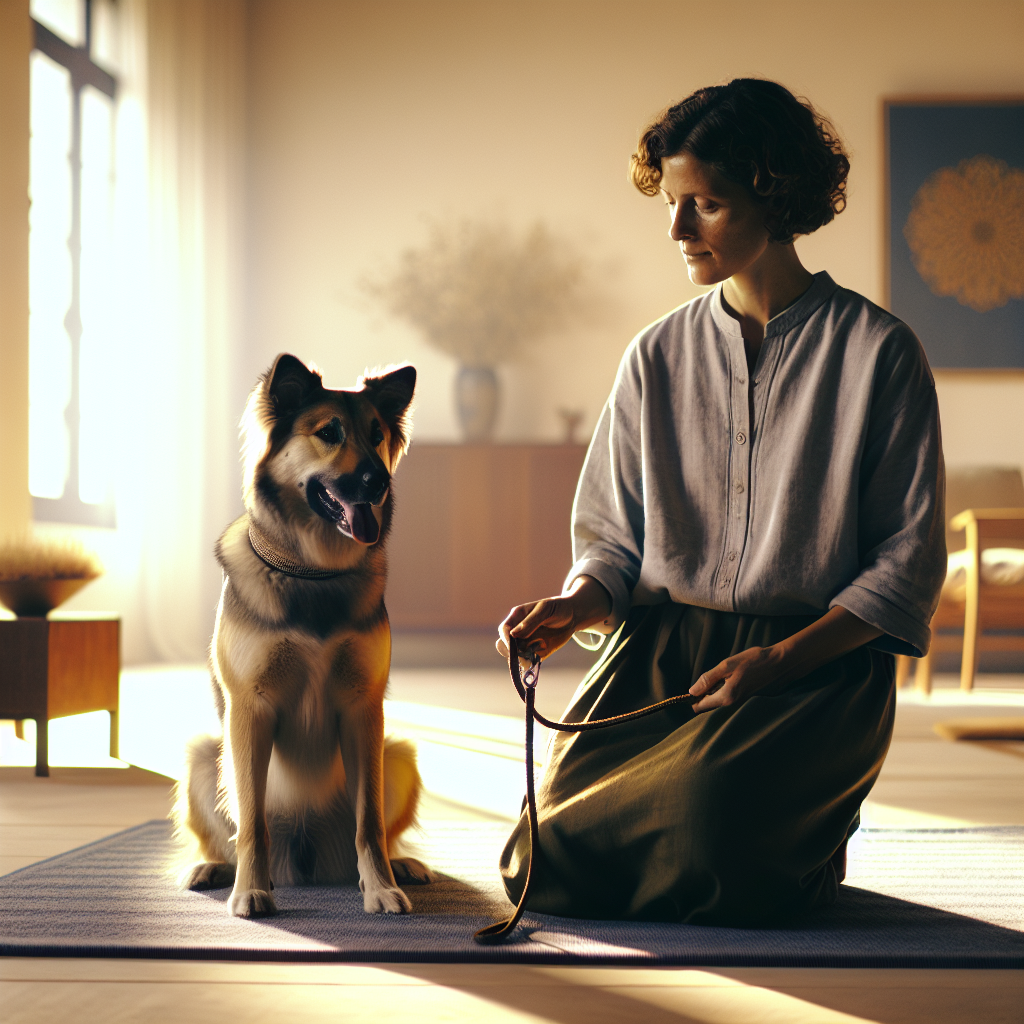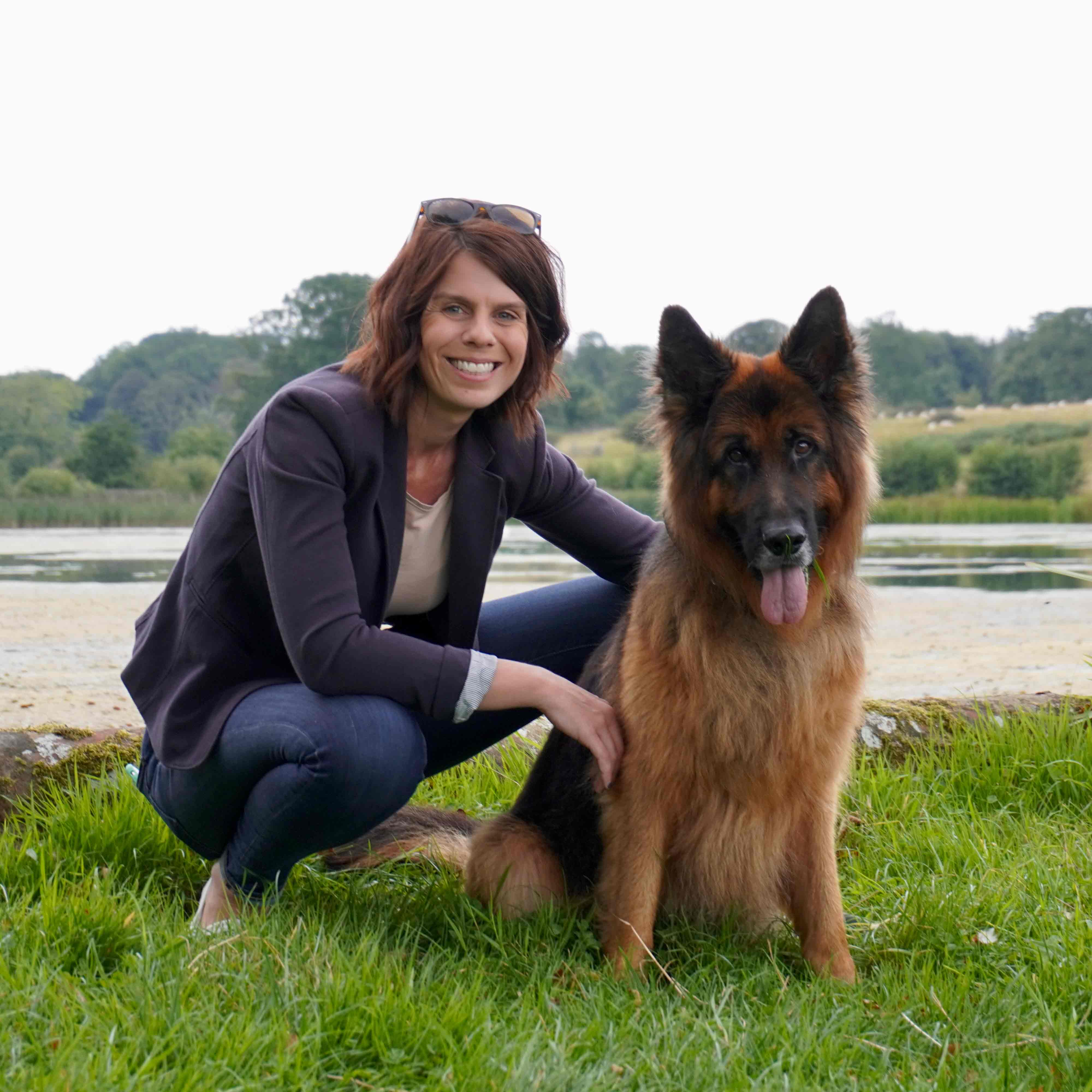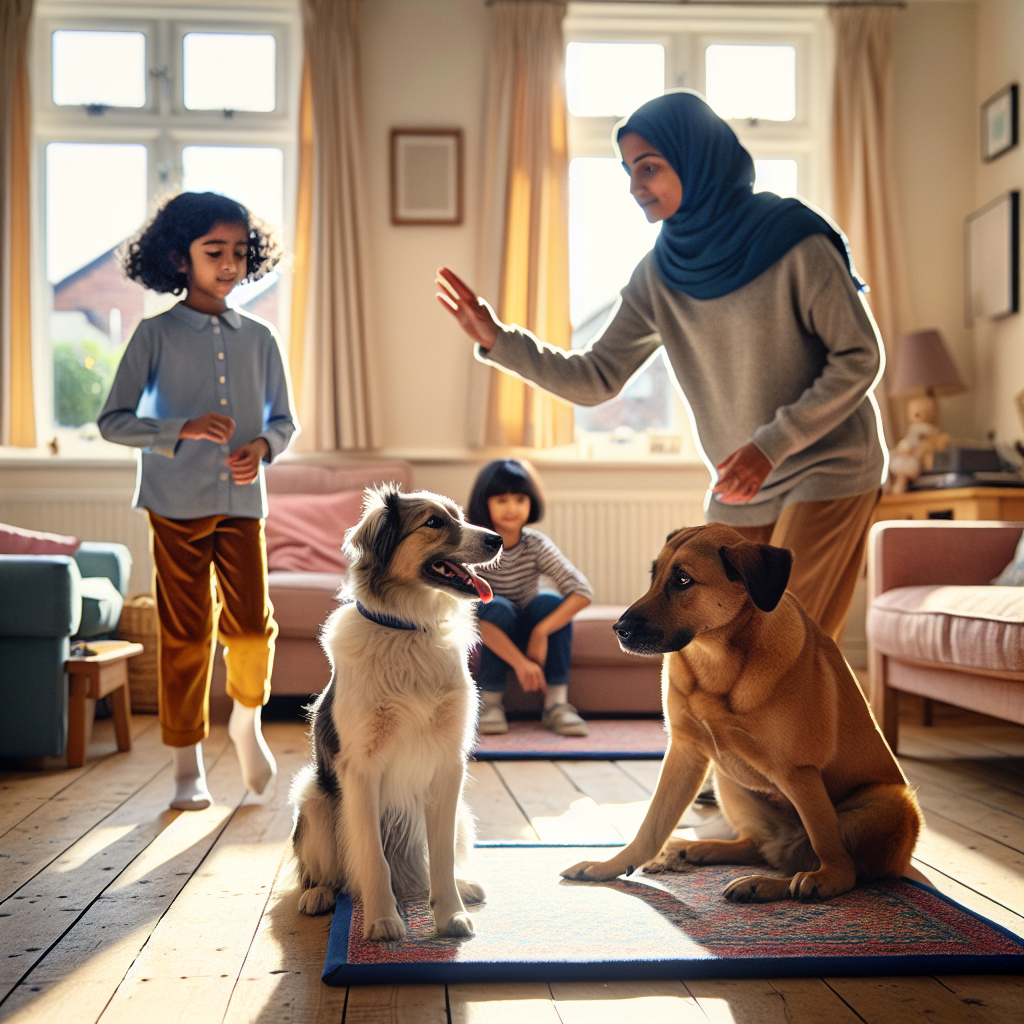Why Dogs Over-Offer Behaviours

Why Dogs Over-Offer Behaviours Explained
If you have ever asked your dog to sit and they offered a sit, down, spin, paw, and a bark before you could speak, you are not alone. Many owners ask why dogs over-offer behaviours and how to guide them back to calm, reliable responses. At Smart Dog Training, we see this every week, and we resolve it using the Smart Method. With structured steps and clear communication, our certified Smart Master Dog Trainer will turn frantic guessing into steady focus.
This guide answers why dogs over-offer behaviours, what it looks like, and how to fix it. You will learn how to build calm defaults, remove confusion, and create engagement that lasts in real life. Every recommendation follows the Smart Method, which blends clarity, pressure and release, motivation, progression, and trust.
What Over-Offering Looks Like In Real Life
Over-offering happens when a dog throws out many actions without waiting for a cue. The dog may sit, then down, then jump up, then offer paw after paw. Some dogs whine or bark while they do it. Others bounce from place to place, scanning your face for any hint of a reward. Owners often call it guessing or doing tricks for free. It can look eager, but the dog is not truly listening. The dog is trying to make the reward happen by trial and error.
Why dogs over-offer behaviours matters because it blocks learning. The dog rehearses frantic patterns and misses the cue that should start the behaviour. It also draws energy up, which makes calm choices harder. In public, this can spill over into pulling, lunging, or barking as the dog loses clarity.
Why Dogs Over-Offer Behaviours Is More Common Than You Think
Modern life rewards dogs for being busy. Quick treats, rapid-fire games, and social media style trick sessions can speed the dog up. Many dogs learn that movement makes food appear. That loop becomes the default when they feel unsure. So why dogs over-offer behaviours has a simple root. The dog is chasing reinforcement without a clear rule set for when the reward can happen.
The Learning Science Behind Over-Offering
At its core, over-offering is a mismatch between cue, behaviour, and reinforcement. The dog does not know what starts the exercise, what ends it, or how the reward is earned. The more uncertain the dog feels, the more likely they are to try many things at once.
Operant Loops And Guessing Games
Dogs repeat what gets reinforced. If any random action sometimes earns a treat, the dog learns to cycle through a set of actions. This is an operant loop without criteria. When owners ask why dogs over-offer behaviours, we often find a pattern of accidental reinforcement for guessing. The dog is not wrong. The rules were never clear.
The Role Of Arousal And Reinforcement History
High arousal reduces impulse control and patience. If rewards are delivered fast and often, the dog expects speed. The moment there is a pause, the dog fills the gap with movement. A history of rapid treats teaches the dog to work like a slot machine. This is a big reason why dogs over-offer behaviours when handlers slow down to add duration or distraction.
Over-Threshold Environments
Busy settings make clarity even more important. If the dog is over threshold, they grasp at anything that once worked. Without a clear cue and a clear end marker, the dog spirals. This is where owners see the worst over-offering, such as barking, spinning, or pawing in public.
How The Smart Method Solves Over-Offering
Smart Dog Training resolves guessing by restoring clarity and building calm defaults that pay. The Smart Method is structured and progressive, with five pillars that answer why dogs over-offer behaviours and how to stop it.
Clarity
We teach clean cues, clean markers, and clean placements of reward. The dog learns when to start, what to do, and when they are finished. Clarity reduces noise. Less noise means less guessing.
Pressure And Release
We use fair guidance with a clear release and reward. Pressure is information, not conflict. We apply gentle guidance to help the dog find the correct choice, then release and reward when they do. This creates accountability and reduces frantic movement.
Motivation
We use food, toys, praise, and access to life rewards. Motivation is not random. It is placed with purpose so the dog learns that stillness and focus earn the best outcomes. When owners ask why dogs over-offer behaviours, the answer often includes poorly placed rewards. We fix that.
Progression
We build from simple to complex. Duration, distraction, and distance are added in layers. The dog never needs to guess, because each step has a clear rule and a clear success point.
Trust
Training should lower stress. As the dog sees the pattern, they relax and comply. Trust grows when the rules are fair and the outcomes are predictable.
Common Situations Where Dogs Over-Offer Behaviours
Puppies With Fast Reinforcement
Puppies are quick. If you pay every movement, they learn to move more. Puppy owners often ask why dogs over-offer behaviours during early training. The cause is simple. The puppy has not learned to wait for a cue or to hold a position for a release.
Rescue Dogs And Uncertainty
Rescue dogs may have mixed histories. Many have been rewarded for being busy or for appeasing gestures. They over-offer to avoid pressure or to seek safety. Clear markers and calm defaults help them most.
Sport And High Drive Dogs
High drive dogs are very reinforcement aware. They want to work, and fast. Without structure, they chain actions together to force a reward. These dogs thrive when we slow their brain, keep their body still, and pay for moments of quiet.
Are You Accidentally Teaching Your Dog To Over-Offer
Marker Timing And Muddy Cues
If your marker comes too late, you may be paying the wrong action. If your cues sound alike, the dog may guess. This is a key reason why dogs over-offer behaviours in multi cue sessions.
Luring And Prompts Without Clean Release
Food lures are useful, but only when we fade them. If the dog keeps following the hand, they move without a cue. We remove prompts and teach a clean release word so the dog knows when to hold and when to break.
Variable Reinforcement Without Criteria
Variable schedules are powerful, but not before the behaviour is stable. If you go variable too soon, you reward the dog for random movement. We keep criteria high and clear before we vary the schedule.
Step By Step Plan To Reduce Over-Offering
The Smart Method builds calm first, then adds complexity. Use this plan to fix why dogs over-offer behaviours and restore focus.
1. Reset Protocols
Start with short, clean reps. Ask for one behaviour. Mark the instant the dog meets criteria. Place the reward where you want the dog to reset, such as directly to the bed or back to heel. Then pause. If the dog offers extras, go still and quiet. Wait for stillness, then cue again. The dog learns that extra actions do not pay, only the one cue does.
2. Patterned Engagement
Teach a simple loop. Look, mark, reward, reset. This answers why dogs over-offer behaviours when they feel lost. You replace chaos with a predictable pattern. Keep the loop steady and short at first.
3. Targets And Boundary Work
Place work is a cornerstone of Smart Dog Training. A raised bed teaches a clear boundary. We reward the dog for going to the bed, settling, and holding position until released. Tactile targets help the dog feel successful and stop busy feet.
4. Duration And Distraction Ladders
Add time in small steps. One second, then three, then five. Add one mild distraction at a time. Do not bundle time and distraction too early. This stops the dog from guessing which part you want. You make the answer obvious, which is why dogs over-offer behaviours less with this approach.
5. Calm Defaults And Stationing
Build default behaviours that are always safe to offer. Examples include sit at doors, down on a bed, and eye contact before a lead clip. We teach these defaults on purpose. They give the dog a clear action that always pays in daily life, so random guessing fades away.
Sample Daily Routine Using The Smart Method
Morning Engagement
Begin with two minutes of pattern work. Look, mark, reward, reset to bed. Then a short place duration set. Reward calm. Release and have a quiet walk.
Training Blocks
Use three to five minute blocks. One behaviour per block. Keep it clean. If the dog starts to guess, pause and reset. This answers why dogs over-offer behaviours during longer sessions. Short blocks prevent mental fatigue.
Walks And Public Practice
Work heeling for three steps, mark, reward to position, then reset. Add mild distractions like a person walking by. Pay for position and eye contact, not for bouncing or vocalising.
Evening Decompression
Finish the day with a place session and a scatter feed in the garden. Calm sniffing lowers arousal and supports rest.
Tools And Equipment Used By Smart Dog Training
We use markers, a standard lead, long lines for safe freedom, a raised bed for place, and well fitted equipment that supports guidance and safety. Tools never replace training. They support it. Clear markers, clean placement of reward, and a fair release are the real answers to why dogs over-offer behaviours.
Progress Tracking And When To Seek Help
Signs You Are On Track
- Your dog waits for a cue before moving
- Fewer random actions and vocalising
- Longer duration holds with soft eyes and calm breathing
- Rewards delivered to position without loss of focus
- Improved behaviour in public, such as steadier heeling
When To Call A Smart Master Dog Trainer
If you have tried the steps above for two weeks with limited progress, or if your dog rehearses frantic patterns in public, it is time to work with a professional. A Smart Master Dog Trainer will assess your dog at home, set clear criteria, and guide your timing. This personalised help speeds results and keeps stress low.
Ready to turn your dog’s behaviour around? Book a Free Assessment and connect with a certified Smart Master Dog Trainer, available across the UK.
Case Study The Dog Who Could Not Stop Offering Tricks
Milo, a one year old spaniel, came to us with non stop guessing. If his owner reached into a pocket, Milo spun, bowed, and barked. Walks were a battle. At home he pawed at guests and could not settle. His owner wanted to know why dogs over-offer behaviours and if we could teach Milo to slow down.
We began with place work and marker clarity. We paid Milo for stillness and for eye contact on a quiet bed. We reset after every reward to keep the pattern clean. We added two second holds, then five, then ten. We paid to the bed each time so the bed became the place where good things happened.
On walks, we used three step heeling with frequent resets. We rewarded Milo for a quiet head and light lead pressure. When he started to guess, we paused. Stillness earned a cue. Guessing did not. Within two weeks, Milo could hold a one minute down on his bed while a guest entered. He offered calm by choice. His owner finally saw why dogs over-offer behaviours when rules are unclear, and how fast they stop when clarity and structure return.
Practical Handling Tips You Can Use Today
- Say the cue once, then wait. Do not add extra words.
- Mark the exact moment of success, then place the reward with purpose.
- Reset after each rep. A simple pause teaches patience.
- Reward where you want the dog to be, such as to the bed or heel position.
- If the dog starts to guess, go still and silent. Wait for stillness, then cue.
- Add duration in tiny steps. Keep the dog under threshold.
- End on success. Short sessions beat long marathons.
How Smart Programmes Are Delivered
Smart Dog Training delivers programmes in home, in structured group classes, and through tailored behaviour plans. Every pathway uses the Smart Method so the answer to why dogs over-offer behaviours is always the same. We restore clarity, build calm motivation, and layer progression until your dog is reliable anywhere. Our trainers are certified through Smart University and supported by our national Trainer Network, which ensures consistent standards across the UK.
FAQs
Why does my dog do every trick before I ask
This is classic over-offering. The dog has learned that movement sometimes earns rewards, so they try many behaviours at once. We fix it by paying only when the cued behaviour happens, and by teaching calm resets and clear releases.
Is over-offering a sign of stress or excitement
It can be either. Many dogs are over aroused or unsure. Clear rules and fair guidance reduce stress and channel excitement into focus. This is central to how Smart Dog Training addresses why dogs over-offer behaviours.
Will more exercise stop my dog from over-offering
Exercise helps, but it does not teach clarity. Many over excited dogs need calmer brain work, not just longer runs. Place training, pattern work, and clean markers solve the learning problem.
Can food lures cause over-offering
They can if not faded. Lures should be temporary. Transition to cues, clean markers, and purposeful reward placement to stop guessing.
How long will it take to fix over-offering
Most families see change within two weeks when they follow the Smart Method. Complex cases or very high drive dogs may take longer. Consistency and clear criteria are key.
Do I need professional help
If you have tried the steps here and still struggle, work with a certified Smart Master Dog Trainer. Personal coaching refines timing and criteria so progress is steady and low stress.
Conclusion
Why dogs over-offer behaviours is not a mystery. It is a clarity problem. When cues are clean, markers are precise, and rewards are placed with purpose, guessing fades and calm focus grows. The Smart Method delivers that structure in a way dogs understand. You will see fewer random actions, more patient holds, and reliable responses in real life. If you want faster, easier results, Smart Dog Training is ready to help.
Your dog deserves training that truly works. With certified Smart Master Dog Trainers (SMDTs) nationwide, you will get proven results backed by the UK's most trusted dog training network. Find a Trainer Near You



